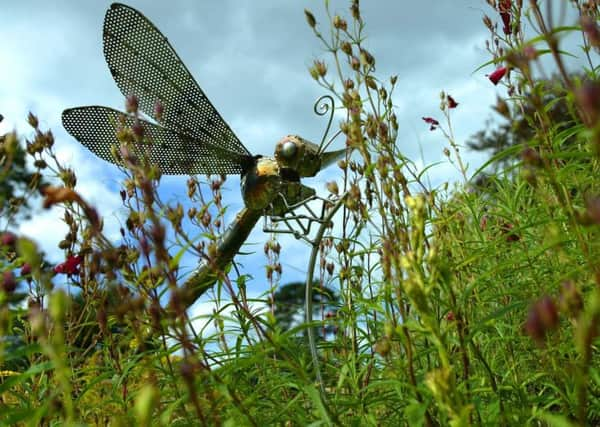Leaders: Biodiversity boost | Health and safety


Now comes a report from an international research team led by scientists at St Andrews University which says that the world’s biodiversity is not suffering at all. But it doesn’t mean that we can all stop worrying.
There are currently two main sources of species extinction. Man is the most effective predator the Earth has yet produced, efficient at killing other animals both intentionally, through hunting, and unintentionally, through habitat destruction. Climate change is the other main cause, making previously hospitable environments hostile. And man has a hand in that too.
Advertisement
Hide AdAdvertisement
Hide AdSince the world’s population has steadily grown, increasing the amount of land needed for food production or mineral extraction – and it is known that the most serious climatic change has taken place in the last half century – it is reasonable to theorise that the rate of species extinction must also be accelerating.
Not so, apparently. Much to the surprise of the scientists, they discovered that the number of species, across all ranges of life forms, has remained pretty constant. Looking at the studies into biodiversity, they also found that as many recorded a species gain as experienced a loss.
This is a tribute to the power of the survival instinct shared by all life forms. Plants and creatures that find themselves under threat, whether it be from predators or from a changing environment, will do all they can to ensure their own survival.
Some may conclude from this that the threat to biodiversity is a scientific myth, that those earnest folk lecturing everyone on the damage they are doing have been crying wolf. They may conclude that action to protect environments is unnecessary and a waste of resources that could be better used on something else.
That would be wrong. This news should be celebrated, but for the rather different reason that mankind has done less harm to the life of the planet than has been feared. The world has not yet suffered the loss of species that many believed has already occurred.
It is also clear that the threat of extinction is still real. The shrinking of the Arctic ice cap and the threat that poses to iconic species such as the polar bear and walrus, as well as many other forms of plant and animal life that have adapted to life in a part-frozen environment, is obvious. There is no colder place for them to go.
There will always be some extinctions through natural selection. Alone of all species, mankind has the know-how to cause massive change, both to the benefit and loss of other life forms. And now that mankind knows so much more about the effects his activities can have, it is surely only in the interests of our own species to live on the Earth as sustainably as possible.
Health and safety joke falls flat
Health and safety – these are perhaps two of the most misused words in the language. They have become so misused, indeed, that to many people, “health and safety” has become a comic phrase raising an easy laugh, and meaning tedious and senseless bureaucratic meddling.
Advertisement
Hide AdAdvertisement
Hide AdNow the UK government minister for health and safety, Mike Penning, has issued advice that the law should not be as misused as it is. A pupil bringing a baby chick into a school does not constitute a risk of spreading avian flu. A dog show in a community hall does not create a risk to public safety.
The Health and Safety Executive reckons it has become a convenient scapegoat used by other bodies to blame for not permitting something, when the real reason is that the bodies concerned don’t have the money, or the staff, or just plain can’t be bothered. There may be a lot of truth in this. But it is also true that health and safety rules do have an important purpose. They are responsible for a big reduction in industrial injuries. It has yet to be determined whether more rigorous application of them might have prevented the awful fatality of a pupil at Liberton High School in Edinburgh, killed when an unstable wall collapsed.
And it is also true that life is a risky business. Avoiding all health and safety risks would mean never going out to face the safety risks of crossing the road and never meeting anyone to avoid the health risks of a transmissible disease. Life by such rules would not be life, a criterion that official bodies should apply when deciding what is, and is not, a health and safety risk. There has to be a healthy dose of common sense.